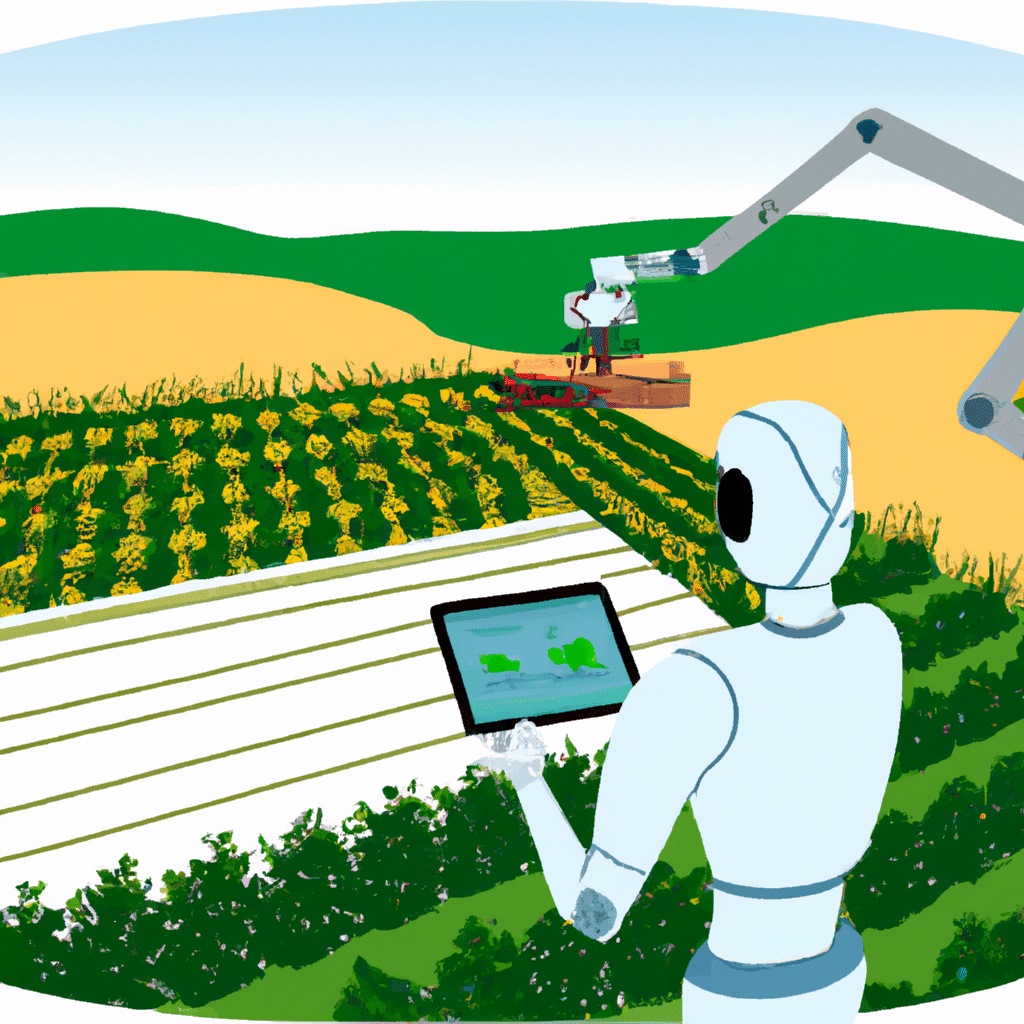How AI is Revolutionizing the Agriculture Industry
In recent years, the agriculture industry has undergone a significant transformation due to technological advancements. One of the most promising technologies that have the potential to revolutionize the way we farm is Artificial Intelligence (AI). AI has the ability to process vast amounts of data, predict outcomes, and make informed decisions based on that data. In this article, we will explore how AI is transforming the agriculture industry.

Precision Agriculture
Precision agriculture is a farming technique that involves using technology to optimize crop yields and reduce waste. AI plays a crucial role in precision agriculture by analyzing data from various sources such as sensors, drones, and satellite imagery. This data is used to create a detailed map of the farm, which helps farmers to identify areas that need attention, such as crop stress, soil nutrient deficiencies, and weed growth.
AI-powered machines can also be used to automate tasks such as planting, harvesting, and crop spraying. These machines can work around the clock, and they are much more accurate than humans, which helps to reduce waste and increase crop yields.
Predictive Analytics
Predictive analytics is another area where AI is transforming the agriculture industry. By analyzing data from various sources such as weather patterns, soil conditions, and historical crop yields, AI can predict future outcomes with a high degree of accuracy. This helps farmers to make informed decisions about when to plant, harvest, and apply fertilizers.
AI can also be used to predict pest and disease outbreaks, which helps farmers to take preventative measures before the problem becomes too severe. This helps to reduce the amount of pesticides and herbicides used, which is better for the environment and reduces costs for the farmer.
Livestock Monitoring
AI is also being used to monitor livestock health and behavior. By analyzing data from sensors that are attached to animals, AI can detect changes in behavior that could indicate health issues. This allows farmers to identify and treat health problems early, which can reduce the need for antibiotics and other medications.
AI can also be used to monitor animal feed and water consumption, which helps farmers to identify potential problems with feed quality or water contamination. This helps to reduce waste and ensures that animals are getting the nutrients they need to stay healthy.
Supply Chain Management
The agriculture industry has a complex supply chain that involves many different players, including farmers, processors, distributors, and retailers. AI can be used to optimize this supply chain by analyzing data on demand, weather patterns, and transportation routes.
This helps to reduce waste by ensuring that products are delivered when they are needed, and it helps to reduce costs by identifying the most efficient transportation routes. AI can also be used to track products throughout the supply chain, which helps to ensure that products are of high quality and meet regulatory requirements.
Conclusion
In conclusion, AI is revolutionizing the agriculture industry by providing farmers with the tools they need to optimize crop yields, reduce waste, and ensure the health and well-being of their livestock. Precision agriculture, predictive analytics, livestock monitoring, and supply chain management are just a few examples of how AI is transforming the industry.
As AI continues to evolve, we can expect to see even more innovative solutions that help farmers to produce more food with fewer resources. By embracing these technologies, we can create a more sustainable and efficient agriculture industry that benefits everyone.












